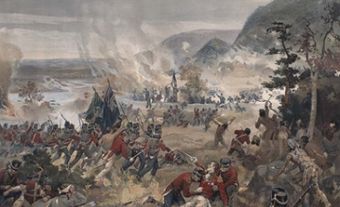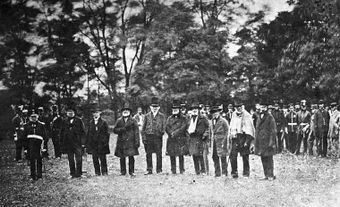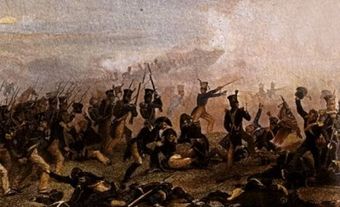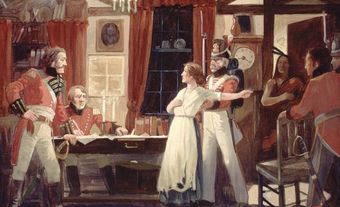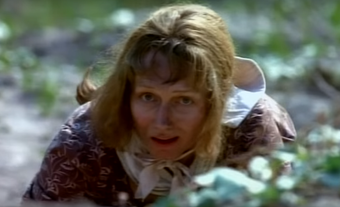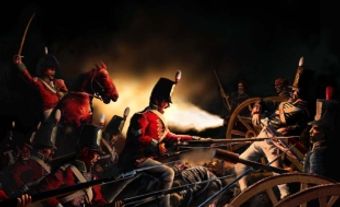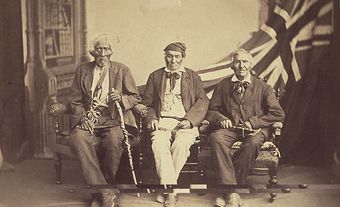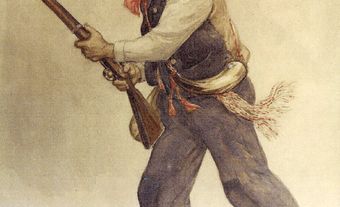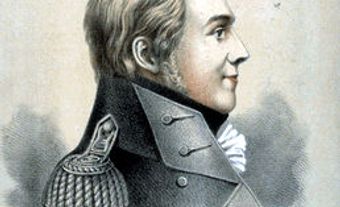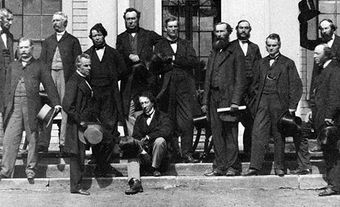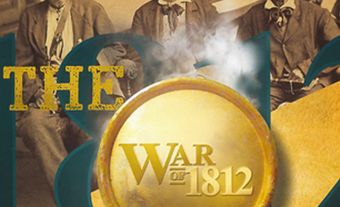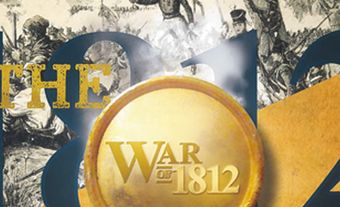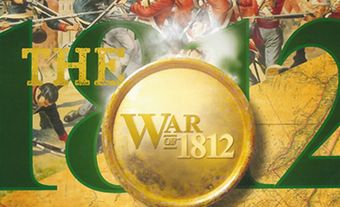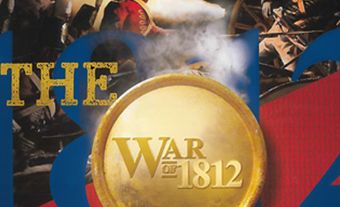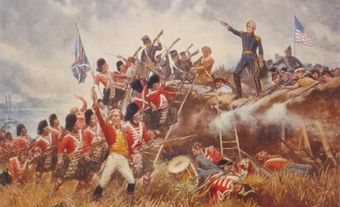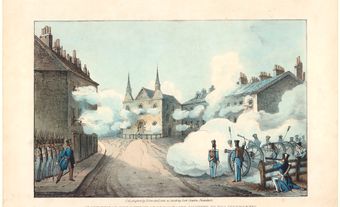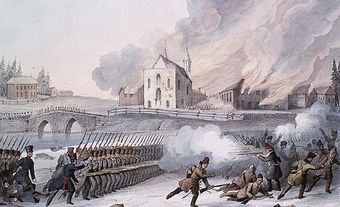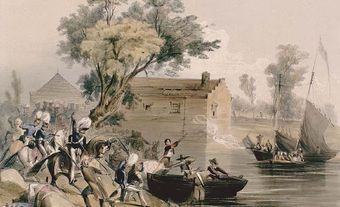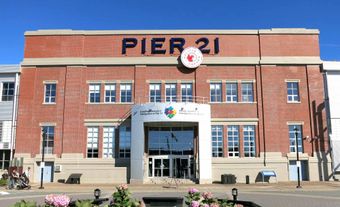James FitzGibbon (sometimes spelled Fitzgibbon), soldier, public servant (born 16 November 1780 in Glin, County Limerick, Ireland; died 10 December 1863 in Windsor Castle, England). Lieutenant and hero of the War of 1812, James FitzGibbon is best known for his actions as a guerrilla fighter who harassed the American forces, and for being the soldier whom Laura Secord informed of the American surprise attack after the capture of Fort George in May 1813. (See also Battle of Beaver Dams.) Tough and wily, FitzGibbon was one of the few soldiers who fought both conventional battles and irregular warfare during the War of 1812.
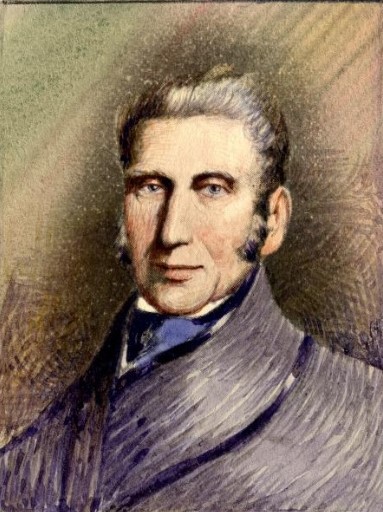
Early Life
James FitzGibbon was the son of a farmer and weaver who owned a small patch of land. But the martial life appealed to him, and by the age of 15 he had joined the Knights of Glin's Yeomanry Corps, and soon made sergeant. He served in an Irish Fencible unit before joining the 49th Regiment of Foot. He served in campaigns in Holland (1799) and Denmark (1801) as a marine. His conduct in the latter earned him the Naval General Service Medal.
FitzGibbon and the 49th soon found their way to British North America, where he came under the instruction of Lieutenant-Colonel Isaac Brock. Knowing he had a smart, capable officer, Brock encouraged FitzGibbon to improve his chances at promotion and success with increased study. By 1809, Brock had made FitzGibbon a lieutenant without the usual purchasing of the commission.
War of 1812
In British North America, FitzGibbon demonstrated his skill and cunning with military logistics by escorting supplies down the St. Lawrence without rousing American suspicions, and led a winter supply expedition via sled from Montreal to Kingston. (See also War of 1812.)
In June 1813, he served as a company commander at the Battle of Stoney Creek, a battle forged in the wake of the successful American capture of Fort George that May on the Niagara Frontier. While most of the American soldiers treated the local British inhabitants well, American raiding parties under the command of Dr. Cyrenius Chapin were dubbed "marauders" and plundered and terrorized the locals. FitzGibbon would not sit idly by. He asked for and received permission to raise 50 men of his choice to mount a guerrilla-style harassing raid on the American forces. The objective was to make their victory painful and convince them it would not be worth the cost, especially for mistreating the locals. FitzGibbon's men wore grey green uniforms and learned to blend into the woods. Nicknamed the "Green Tigers" and "Bloody Boys," they were tough, cunning and ferocious in combat.

The Green Tigers operated from Beaver Dams, stalking and raiding US forces and hunting for Dr. Chapin. When Laura Secord informed FitzGibbon of the impending American advance of 500 men to dislodge his forces from their base of operations, he prepared for what would be the decisive British victory at Beaver Dams against the US forces under Lieutenant-Colonel Charles Boerstler, with the aid of regular troops and First Nations allies. The victory, which employed guile and skill as well as the force of arms, made FitzGibbon a hero not unlike that of his fallen mentor, Isaac Brock, one whose view of strategy and tactics was imaginative, initiative driven, and successful.
For his actions, FitzGibbon was made captain of the Glengarry Light Infantry Fencibles. For the remainder of the war, his efforts primarily lay in reconnaissance and intelligence, though he served during the bloody Battle of Lundy's Lane.
Life in Public Service
After the War of 1812, FitzGibbon served as a public servant, often employing his name and reputation to quell unrest with Irish immigrants. (See also Immigration to Canada.) He served as acting adjutant general during the Rebellions of 1837, where his actions quelled the rebels' march on Toronto.
Tough, smart, and cagey, FitzGibbon returned to England in 1847 after the death of his wife, but retained a fondness for Canada, the emerging nation he had fought so hard to protect, and home of his greatest success as a soldier.

 Share on Facebook
Share on Facebook Share on X
Share on X Share by Email
Share by Email Share on Google Classroom
Share on Google Classroom
